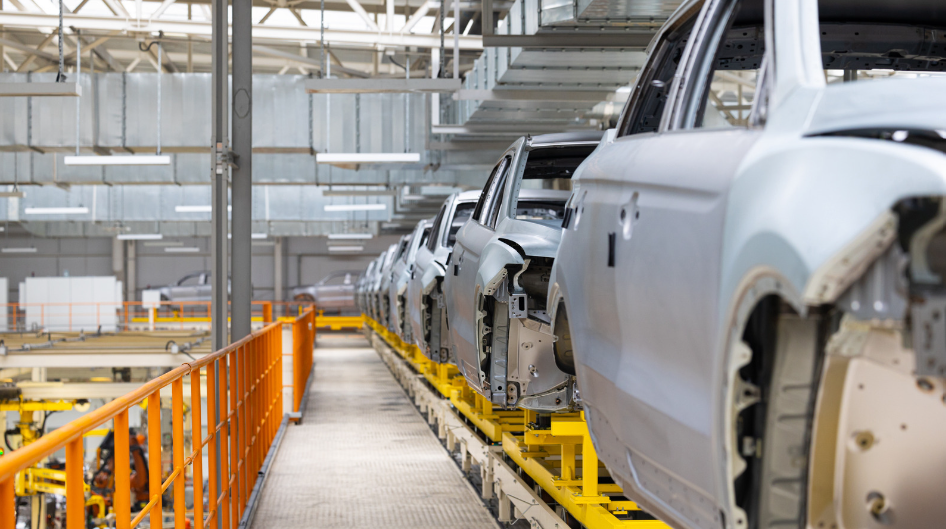
With electric vehicle (EV) sales surpassing 10 million units globally in 2022 and projected to grow by 35% this year, the automotive industry is experiencing an electrifying surge. The EV market share is set to reach 18% in 2023, and industry experts predict that electric vehicles could account for 40% of total passenger car sales in the United States by 2030. As automakers gear up to meet this skyrocketing demand, they face the challenge of attracting and retaining qualified team members. However, there’s a solution that has been driving efficiency in the automotive sector for years: automation.
Building an Efficient Assembly Line:
Automation has the potential to revolutionize the assembly process by replacing manual labor with advanced machines. By leveraging robotics and intelligent systems, automakers can streamline production, enhancing speed and efficiency while minimizing the risk of errors or defects. With automated assembly lines, the manufacturing process becomes more reliable and consistent, ensuring seamless production of electric vehicles.
Enhancing Quality Control:
Ensuring the highest quality standards is paramount in the automotive industry. Automated quality control systems play a pivotal role in identifying and rectifying defects or issues throughout the manufacturing process. By leveraging machine vision and inspection technologies, automakers can detect and address potential problems swiftly, guaranteeing that every electric vehicle meets the necessary safety and quality benchmarks.
Driving Cost Reduction:
Automation not only improves productivity but also offers cost-saving advantages. By replacing manual labor with automated systems, manufacturers can reduce labor costs while optimizing production processes. Automated systems can help minimize waste, streamline operations, and enhance resource allocation, ultimately resulting in more cost-effective electric vehicle production.
Unlocking Increased Production Capacity:
One of the significant benefits of automation is its ability to unlock higher production capacities. With 24/7 operation and reduced downtime, manufacturers can ramp up output and meet the growing demand for electric cars. Automated systems enable continuous production, reducing the need for breaks and optimizing the efficiency of the production line. This increased capacity empowers automakers to meet market demand more effectively.
Catering to Customization:
In a competitive market, customization is key to success. Automated systems can be programmed to create customized electric vehicles, accommodating unique customer demands. This flexibility allows manufacturers to differentiate themselves and cater to diverse consumer preferences, positioning them ahead of the curve in the EV industry.
Partnering with Stoecklin: Your Automation Solution
As the automotive industry undergoes this electrifying transformation, Stoecklin Logistics stands ready to support automakers with their automation needs. With extensive experience in seamlessly moving parts and components between storage locations and factory floors, Stoecklin is adept at optimizing high-paced environments where time is of the essence. Our systems seamlessly integrate with inbound processes, warehouse management systems (WMS), warehouse control systems (WCS), and automation equipment controls. By harnessing the power of data and tailoring solutions to the complexity of your operation, Stoecklin ensures efficient, reliable, and future-proof automation support.
Automation is the driving force behind the automotive industry’s ability to meet the surging demand for electric vehicles. By embracing automation’s potential, automakers can enhance assembly line efficiency, improve quality control, reduce costs, increase production capacity, and offer customized solutions. Stoecklin Logistics is your trusted partner, equipped with the expertise and tailored solutions to navigate the evolving landscape of automotive automation and support the production of cutting-edge electric vehicles. Together, we can accelerate the future of electric mobility.

Recent Comments